From an early age, Kabira, 35, had her sights set on the costume design industry. That is, until life tossed her that ‘20-something’ curve ball so many of us have the pleasure of experiencing. A chance opportunity with Los Angeles mayor Eric Garcetti drew her gaze away from costuming and centered it squarely on the crime haunting her city. It was in that particular moment that Kabira truly faced the world head-on, and ultimately decided to shift her journey, starting with a graduate degree in public policy.
Later, again dictated by fate, Kabira crossed paths with a man who had successfully introduced the city’s incarcerated population into the staff of his e-waste company. Something within Kabira clicked. She immediately grasped onto the fact that the unorthodox system had the potential to deal with crime stats, all while assisting a population wrought with difficulties—it was the perfect outlet for the skills she had picked up throughout the course of her graduate work.
With her focus set on expanding beyond Los Angeles, Kabira turned her new passion into a full-time profession as founder and CEO of Isidore Electronics Recycling. Today, we are proud to introduce you to yet anther Career Contessa who found her way in an ever-changing world and managed to make the most of new opportunities.
Her Starting Point
Your background in sociology and public policy is in direct correlation with your career. When did you first become interested in such a specific and focused branch of public policy?
In 2004 I met my first Los Angeles elected official, then-Council Member (now Mayor) Eric Garcetti. I was a pretty angry activist back then, and I think he took pity on me and said, “Hey kid, you’re so mad at the government—want to come see how it actually works?” In 2005, as the newly named City Council President, he brought me onto his staff as a Field Deputy (and the Arts Deputy), and I quickly learned more than I ever wanted to about the realities of my eastside Los Angeles world—the 13thcouncil district.
What hit me hardest were the crime stats. I reviewed them every week for the neighborhoods that were under my charge—Echo Park and Atwater Village—and I suddenly became very aware that all was not well in the hipster paradise my friends and I brunched in every Sunday. People—young people—were actuallydying because of gang related violence right in my backyard, and it wasn’t getting any better. So I decided to learn all that I could about the causes of crime, what happens to people after they get caught for committing a crime, the justice system in general, etc. That led me to my work today.
Sometimes students take breaks after college before entering a Master’s program. What was your journey like? Tell us about your transition from college to your Master’s, and where you are now.
Well, this is probably the best time to admit to you that all I ever really wanted to be was a costume designer. While studying Sociology and Spanish in college, I also was dreaming of fabric and pincushions, so when I moved to Los Angeles in 2000, I cranked up my Gramma Pat’s sewing machine and got to work. But, as my early twenties rolled along, the world changed. 9/11 happened, wars were waged, John Kerry lost an election I needed him to win, and I found myself unable to concentrate on hemlines and seam allowances. I started marching, I started organizing. I had been...activated.
Lucky for me, Garcetti and his team took a chance on me, and I was able to discover my passion in his office. From there I knew that I wanted to become as knowledgeable as I could about my new field of interest, I wanted to become an expert. So…it was off to grad school!
Her Big Break
Isidore Electronics Recycling is your e-recycling company. When did this idea first spark in your mind? Tell us about the process of creating the company and how the name “Isidore” came about.
First, a quote: “We want to ensure that those communities that were locked out of the last century's pollution-based economy will be locked in to the new clean and green economy. We know that we don't have any throwaway children or neighborhoods either. All of creation is precious and sacred. And we are all in this together.”
Van Jones said that in 2007. I took those words very much to heart, and was really inspired to be part of his work. When I eventually left Garcetti’s office to go to graduate school, I started working for Van’s newly formed non-profit, Green For All. So, while in school, studying the public policies around our prison system, programs that keep people from entering or returning to it and emerging green industries that could provide stable jobs to this same population, I was also telecommuting to Oakland, immersing myself in the wonkiest of policy details centered on “building an inclusive green economy strong enough to lift people out of poverty.”
Through Green For All, I met a man from Indiana who had an e-waste recycling company that existed to hire people coming out of the prison system—something just clicked. After graduation I couldn't think of anything else I wanted to do. So off I went. I found an MBA from Marshall, who co-founded the company with me, raised a ‘friends and family’ round of funds and got to work.
The name ‘Isidore’ comes from the Patron Saint of Electronics and the Internet. The Catholic Church named Isidore of Seville a saint in 1999. I liked the name, liked the significance and thought it was interesting. Thus, Isidore Recycling.
Enlighten us on the concept of e-recycling and what it entails. What is the process?
Our main work is to keep discarded electronics (phones, TVs, computers, random wires, etc.) out of landfills and properly recycled. We collect e-waste from businesses, the government, schools and non-profits, or we receive electronics at our warehouse near downtown LA. From there we determine if an electronic is "end of life," in which case we'll often take it apart and find the proper downstream recyclers for the various parts, or it’s “reusable,” in which case we will wipe data, fix it up a bit and re-sell it. We also will wipe data, repair items for clients, help them with asset disposition—whatever a client needs to manage unwanted electronics, we'll do it. And through that, we can provide jobs.
As Founder and CEO of Isidore Electronics Recycling, what are your main duties and responsibilities on a day-to-day basis?
I'm sure every CEO says this, but each day is different. However, my main responsibility is to manage and chart the course of the company: finding and managing new clients and revenue streams, developing and maintaining strategic partnerships, keeping an eye on revenues and our finances, managing the image of the company and making sure that the enterprise is running as it should.
We are still a small team, so some days I spend time managing our workers, which I really enjoy as it reminds me why the company exists in the first place—this is particularly helpful because the days are long. Lots of emails, lots of meetings, phone calls, creating presentations, checking in with my warehouse and logistics managers and with my advisors, dreaming big and keeping up with the latest in the e-waste recycling industry, as well as staying on top of what's happening with the California prison crisis. It's never dull, I'll say that.
One of the main concerns with e-recycling is the environment. How does your company recycle responsibly? How do you ensure the least possible amount of pollution and harmful waste?
Our function is to keep e-waste from ending up in landfills or processed in unsafe environments, so we start there. But, once electronics come to us, we then have to make a choice as to where they go once we process them and send them downstream.
When we started, we made the choice to only sell our processed material (the circuit boards that we collect from de-manufactured computers, the plastic casings from universal power supplies, etc.) to environmentally certified companies. In this industry, there are two: E-Stewards and R2. Though we could get more per pound if we sold to companies who ship directly to China, etc., we chose to go with the standards that exist. We didn't get into this business, after all, to trash the planet.
According to your website, Isidore Recycling employs “previously incarcerated Angelinos who face barriers to employment.” Where did this idea come about? What are some of the benefits and challenges of incorporating this into your company?
I will just say this: America incarcerates more people than any other place in the world and it’s not working. We’re incredibly good at incarcerating people, and absolutely failing at rehabilitating them. I want to be part of the solution, and the solution includes making sure people can get quality employment when they exit the prison gates.
As for the benefits: it’s amazingly satisfying to be able to give employment to people who really want it and really need it and who just need a chance to do well. On the business side of things, we get a really positive reaction the vast majority of the time to the fact that we have our social mission built into our business. We get clients because of it and it sets us apart. The challenges are dealing with a population that doesn’t always know how to show up to work on time and, sometimes (but not all the time) has more challenges than other folks might have. But, it’s part of the work—it’s a challenge that we welcome at Isidore.
Given the rise in the need for electronics in the past couple of years, the need and popularity of e-recycling has risen as well. What advice would you give to women interested in working within the sustainability industry?
Just do it. And stick with it when it gets hard, because it will.
Find that thing that you want to tackle deep in your heart, that wacky idea that you have about how you can help our world adapt to climate change (or whatever your issue is), and go for it. Work hard and find ways to keep yourself reminded about why you are doing it. We all have to work, so why not dedicate that part of our lives to making a positive difference, and to doing what we really want to do deep down?
That's my advice. Just do it.
What skills are necessary to work in public policy? What will help people thrive and what should they avoid?
Curiosity, dedication and a lack of fear about geeking out on some pretty wonky subjects. You really have to want to get into the math and the details of why policies work or don't work or how they can be bettered.
I would say to thrive, try to avoid letting the politics around public policy take you down. It's actually impossible to separate the two things, but at least strive not to take the politics personally, and to always be aware that policies only exist within whatever political structure exists. So, what's the best way to achieve your goals within that context?
Also, focus on your work and don't watch too much of the news on TV. That stuff's not good for you.
Her Perspective
Downtown Los Angeles is notorious for being a busy and hectic environment. What routines do you have to keep yourself balanced? How do you stay calm and fresh in the hustle and bustle of downtown?
I go dancing as often as possible, take a lot of walks with friends, spend time with children, eat well, sleep well, exercise often, drink a lot of non-caffeinated tea—all of that helps me stay calm at work. Also, I've found that if I'm on the verge of panic, throwing on Radiohead's "In Rainbows" generally brings me back from the edge. Or an episode of 30 Rock.
Was there ever a time where you faced serious and very real struggles? If so, how were you able to overcome them?
Well, in May of last year, the 5,500 square foot warehouse that we were renting suffered a severe electrical fire. The structure still stands but, basically, my business burned down. Two months later, my co-founder quit. So...that was a struggle.
It's been an incredible experience, as you can imagine, and certainly the most challenging thing I have ever been through. The way I got through it involved a few stiff drinks, a lot of physical exercise, a lot of reaching out to my advisors and friends, meditation and perseverance. Also, the sheer dedication of the team that remained behind was amazing and inspiring, we came together to get through it, and I will remain ever grateful to them. And, once you get through something like that and decide to double down on your commitment, it's almost like you have nothing left to lose. So each day, even though more troubles come, you are bolstered by the knowledge of how strong you are and that you can keep going through crazy hard times. It really is true—what doesn't kill you does make you stronger.
Will Isidore be expanding outside of Los Angeles? What’s next for your company?
For now we are focused on developing the e-waste recycling industry here in LA but yes, the ultimate goal is to expand to other regions. What's next is finding our next warehouse space that will be able to house us as we grow over the next few years, and building a model that can be replicated around the country, if not around the world.
Many women struggle with bringing their career dreams to life. What advice would you give to women who are struggling with finding their way and their drive?
Really explore what's getting in the way of following your dreams. And don't be afraid to really explore it: go to therapy, meditate, climb mountains, call your grandmother to talk—whatever it is that offers you a space to safely explore the limitations that you place on yourself. Knowing is half the battle, so once you know how you are getting in your own way, then you can start to find your way around all of that to accomplish what you really want.
You May Also Like
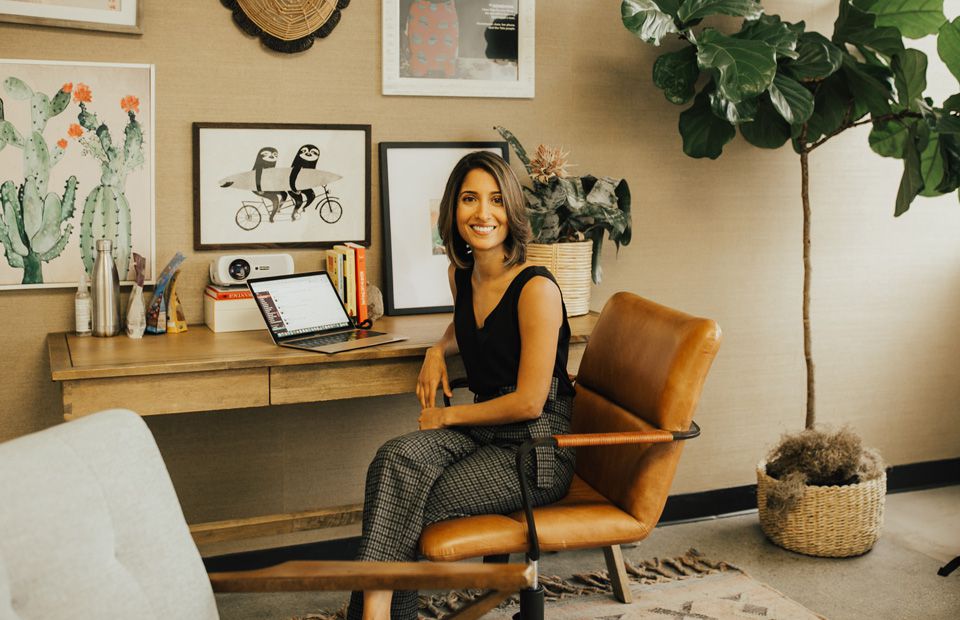
Technology
A Tech Founder on Why Being an Outsider Is a Strength
"I actually think most successful founders are rebels, of a sort. We’re trying to do new things and take on entrenched systems or ways of thinking. What makes me and our company different is that we’re outsiders."
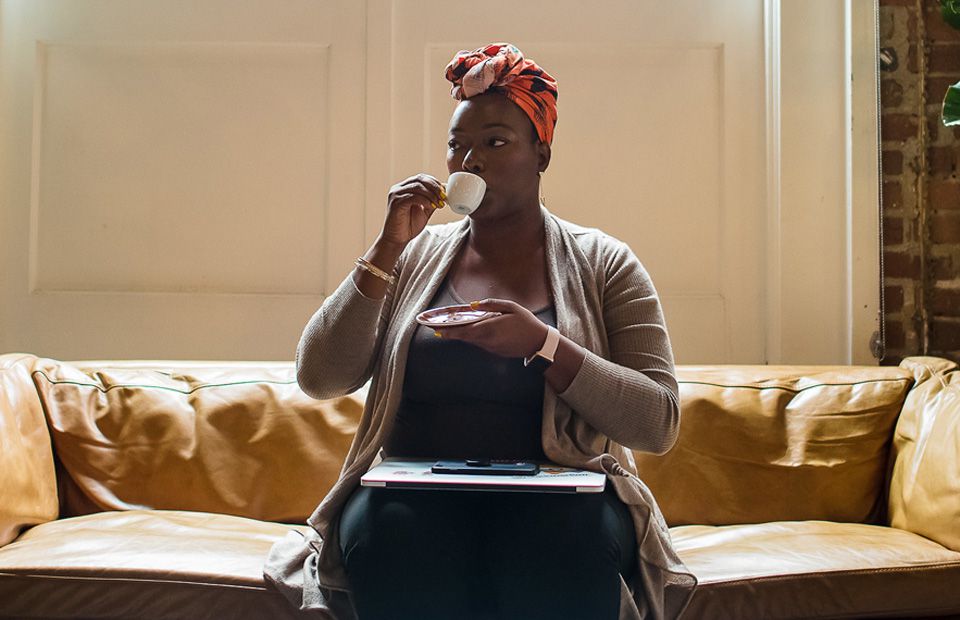
Technology
Omoju Miller—Tech Veteran, Leader, and Volunteer Advisor to the Obama Administration—on The Crucial Role of Creativity in the Tech Industry
"If you are in an environment where you feel marginalized, leave. Don’t try to change it. Go and look for a place that sees you and lets you be you."
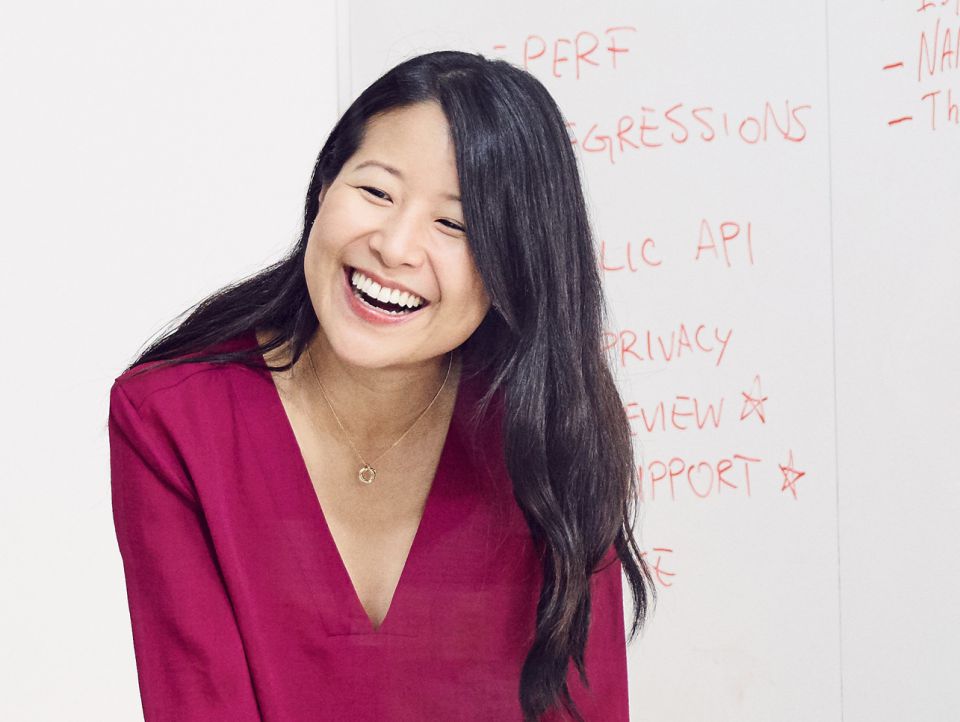
Technology
Sharing Stories as a Software Engineer
We sat down with Apple software engineer Emilie to learn about her day-to-day working at Apple along with what it takes to run the perfect meeting and her favorite ways to unwind.
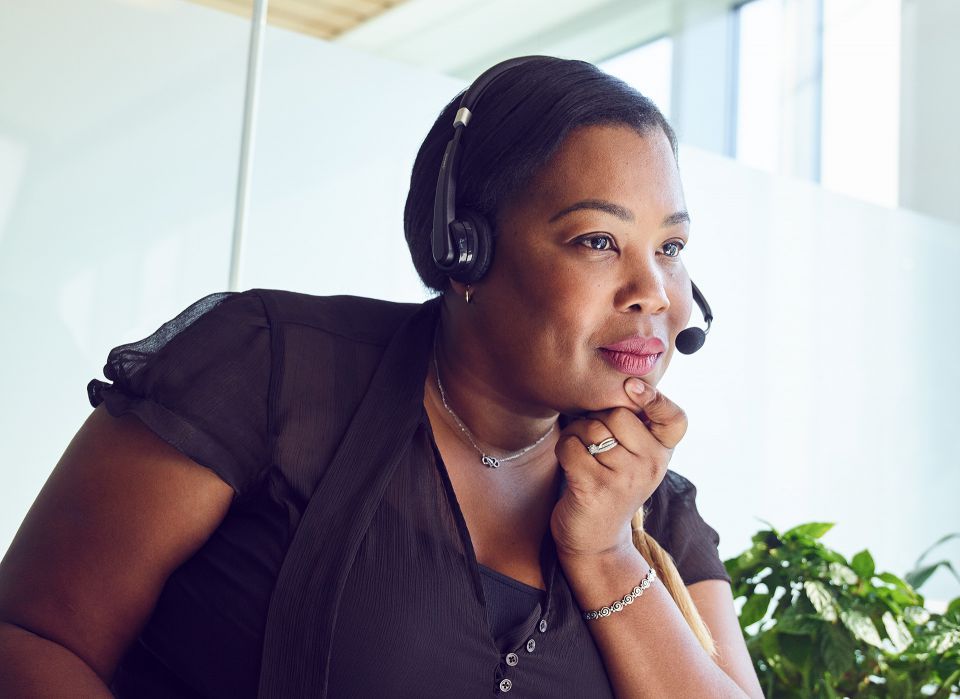
Technology
Creating Impact with Apple
We sat down with Apple's Senior Developer Partner Relations Advisor, Cris, to learn about what it takes to create a lasting impact within a large company. She shares a typical day in the life, her favorite book recommendations, and her top four tips to running a meeting.
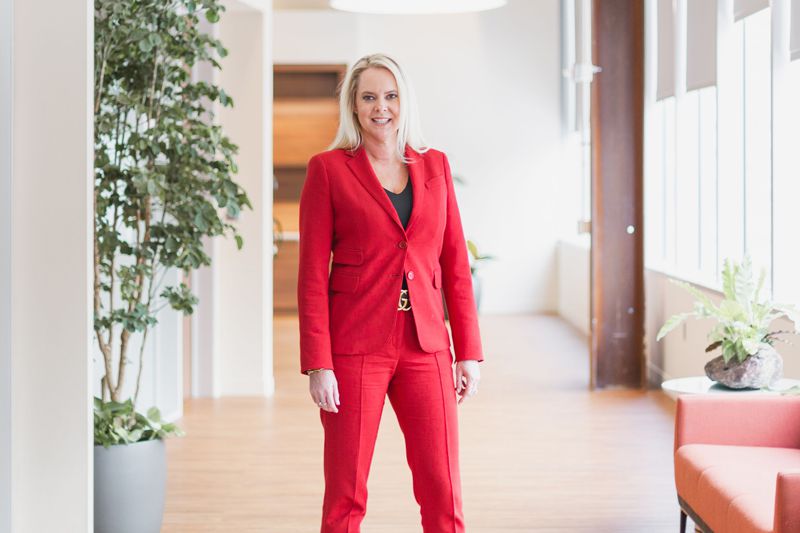
Technology
Salesforce’s Senior Vice President of Sales on Unconscious Bias, Failure, and Innovative Leadership
"Do not be afraid to fail, just bring your best self to the table."
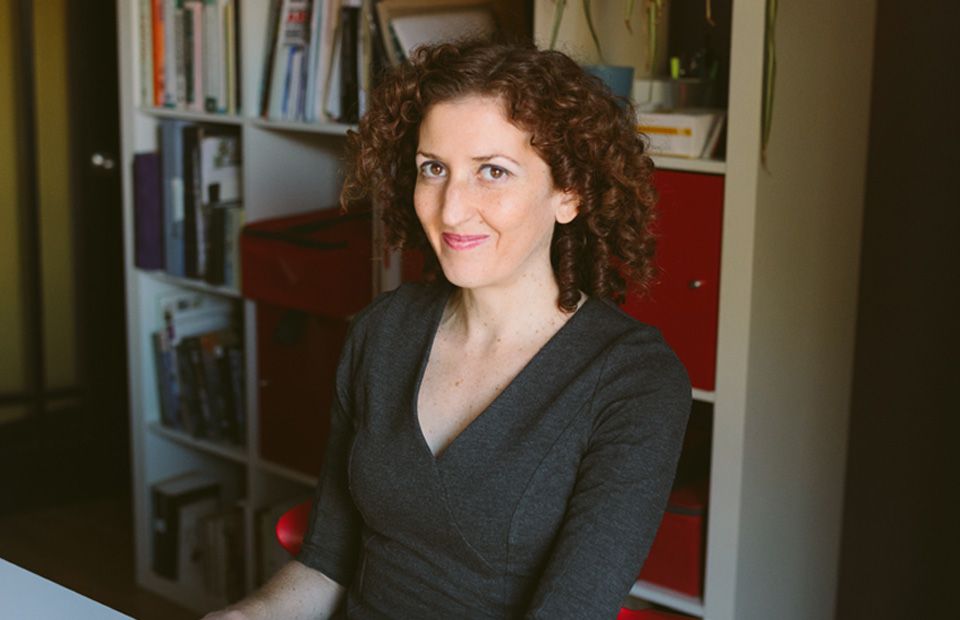
Technology
A Director of Engineering on Tech + Leadership
"I don’t believe in 'having it all'. If you spend more time on one thing, then you spend less time on another thing. All we can do is make choices on how to spend our time."
Get the Best Career Advice Delivered To Your Inbox
Join our newsletter to stay in the loop.
